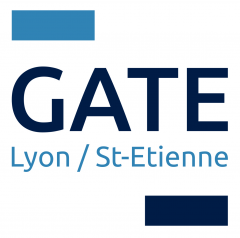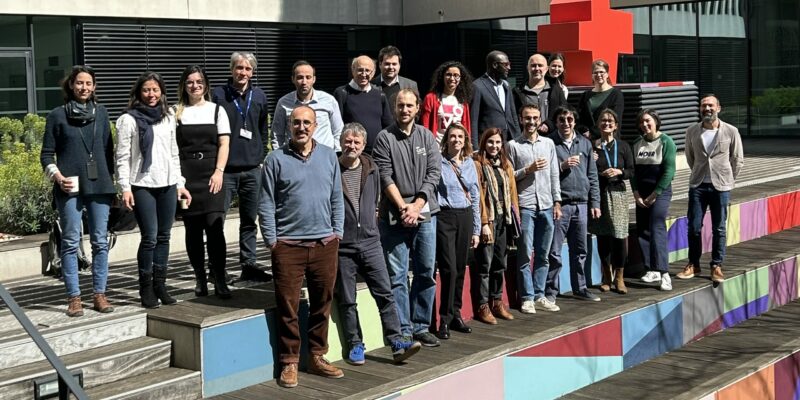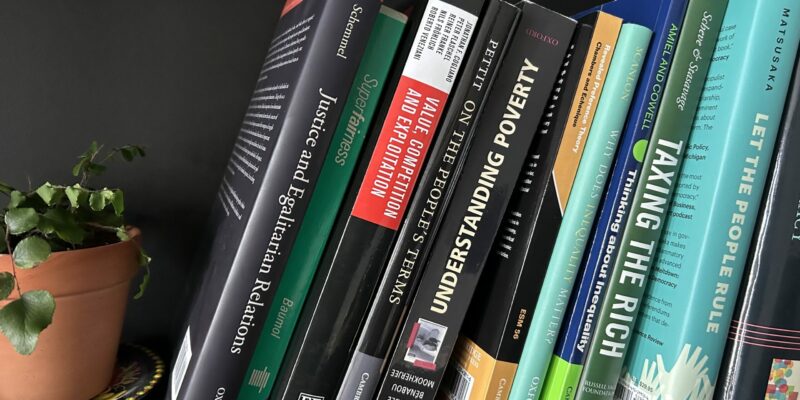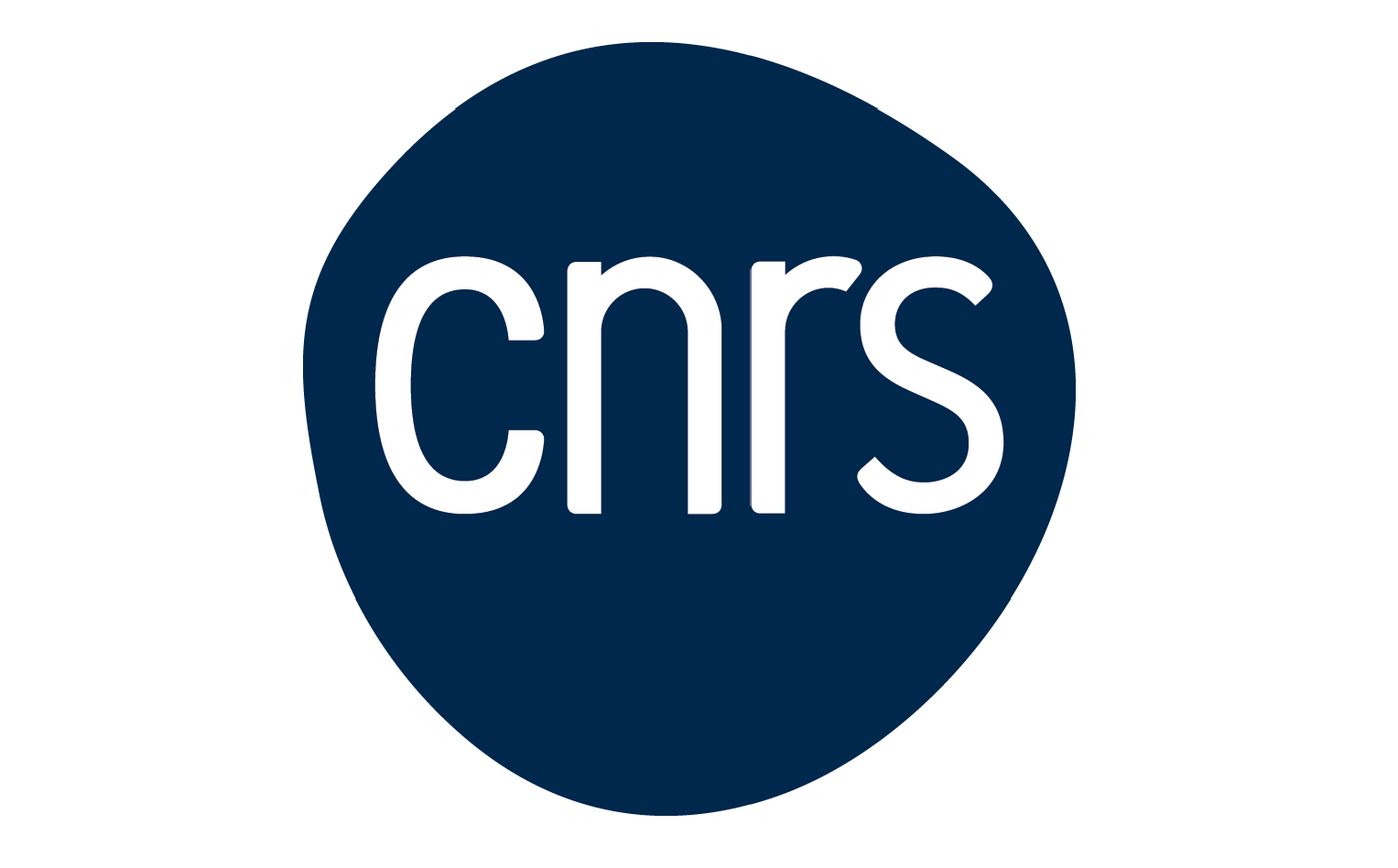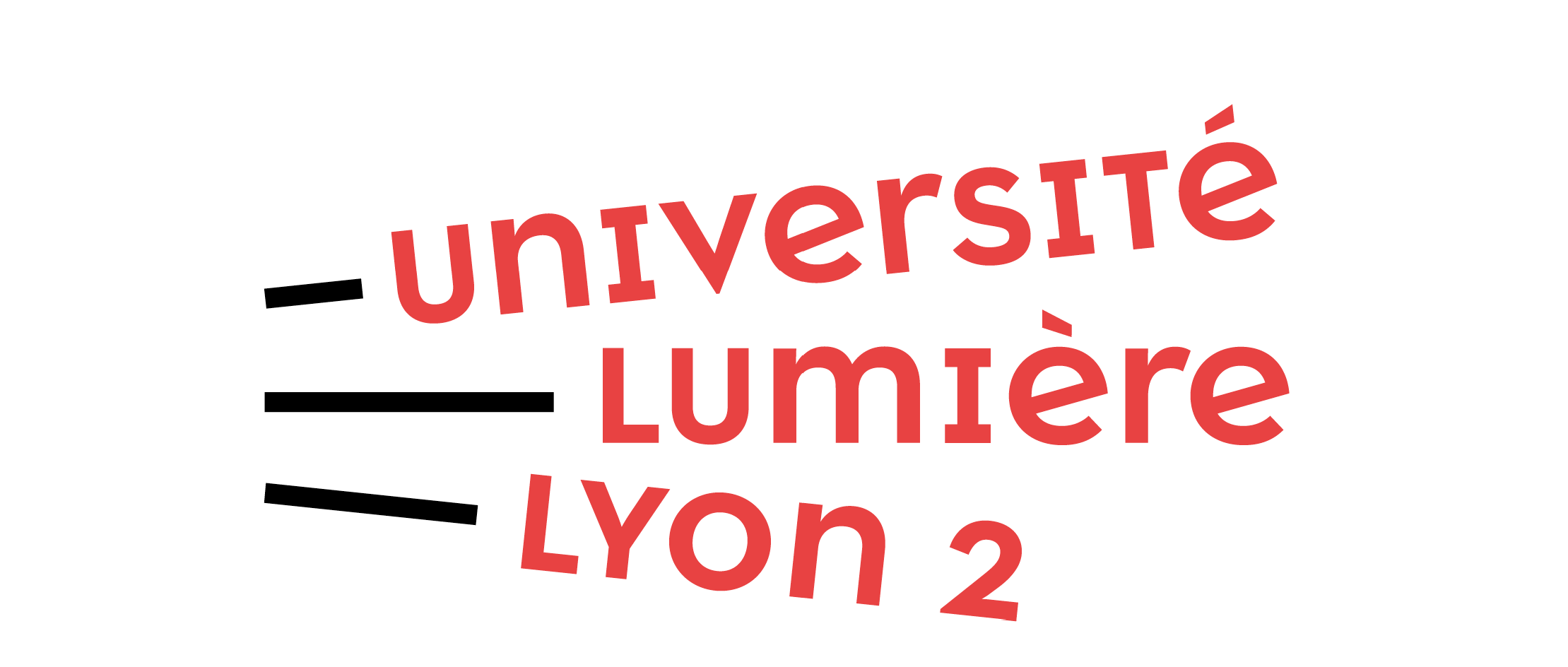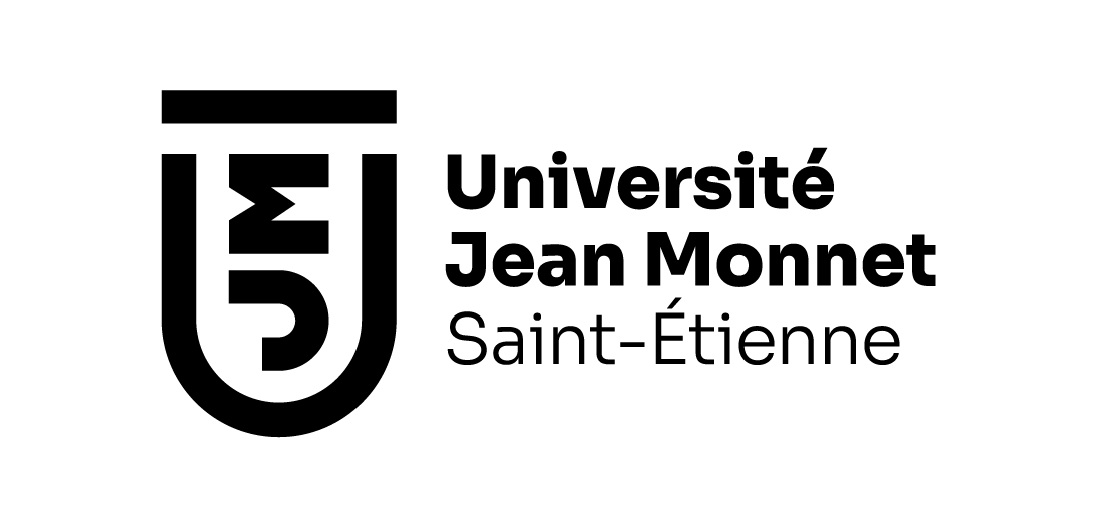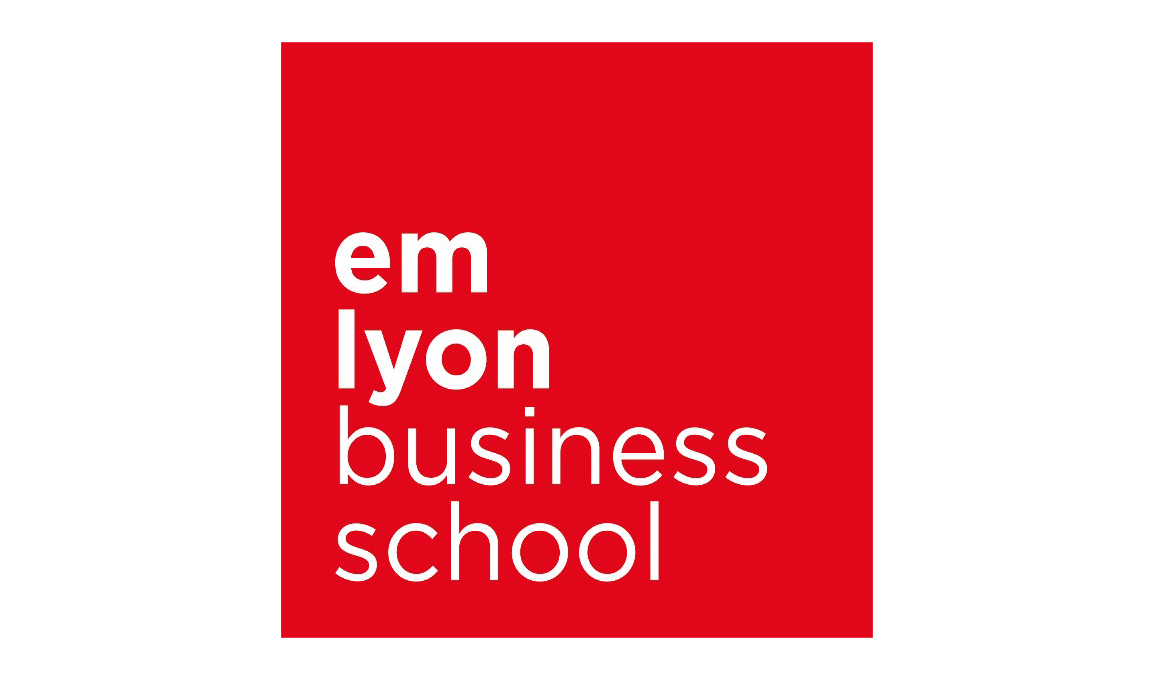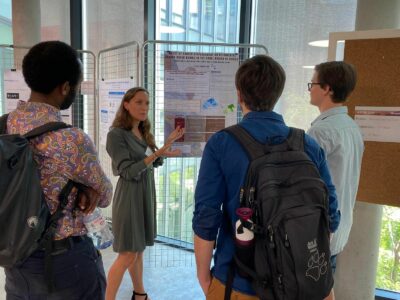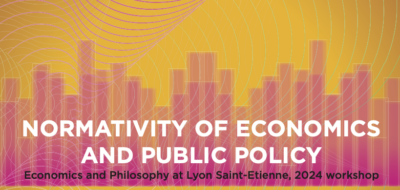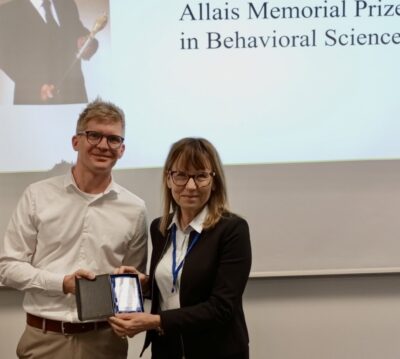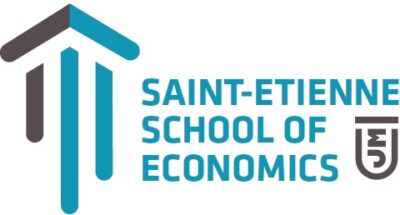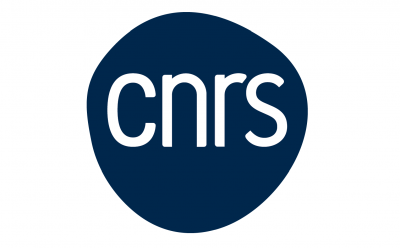UMR 5824
Groupe d'Analyse et de Théorie Economique
Le "GATE Lyon-Saint-Etienne" (Groupe d'Analyse et de Théorie Economique) est une Unité Mixte de Recherche (UMR5824) rattachée au CNRS Sciences humaines & sociales, à l'Université Lumière-Lyon 2, à l'Université Jean Monnet-St-Etienne et à l'emlyon.
À la une
Voir toutes les actualitésVisiting professor: David Wolf (Kobe University)
David Wolf will be a visiting professor at GATE Lyon Saint-Etienne in September 2024.
ASFEE 2024 Young Researcher Prize for Elodie Corvaisier, PhD student at GATE
Elodie Corvaiser is one of the recipients of the ASFEE 2024 Young Researcher Prize, for the best experimental model presented during a doctoral poster session at the ASFEE 2024 conference in Grenoble.
Development Economics Workshop
Le GATE organise un workshop en économie du développement qui aura lieu les 11 et 12 Juillet à Saint-Etienne.
Economics and philosophy at Lyon Saint-Etienne
L'atelier 'Economics and Philosophy at Lyon Saint-Etienne' est organisé le 14 juin 2024 par l'Institut de Recherches philosophiques de Lyon (IRPHIL) et le GATE Lyon Saint-Étienne. Il portera sur le thème interdisciplinaire de la « Normativité en économie et politiques publiques ».
Behavioral and Experimental Economics GATE-NTU Workshop (BEELS) – May 15-16, 2024
The workshop is held between researchers of NTU Behavioral and Experimental Economics (Singapore) and GATE-Lab (Lyon). The workshop will take place just before the 2024 Asia-Pacific meeting of the Economic Science Association (ESA) organized by NTU (May 17-19). It is supported by a PHC MERLION grant (Campus France, NTU, and the French embassy in Singapor).
2024 Allais Memorial Prize in Behavioral Sciences
Marie Claire Villeval a reçu à Prague le 2024 Allais Memorial Prize in Behavioral Sciences décerné par la Fondation Maurice Allais et la Prague conference in behavioral sciences.
Postes d'ATER
L'école d'économie de Saint-Etienne ouvre 3 postes d'ATER
Recrutement : Assistant.e en gestion financière et comptable (CDD 6 mois)
Le GATE et le CNRS recrutent un.e assistant.e en gestion financière et comptable en CDD (6 mois) à partir du mois de mai, sur le site de Lyon 7ème.
Prochains évènements
Retour à l'agenda S’abonner
Derniers articles parus
Voir toutes les publicationsArticle dans une revue
2024
- ref_biblio
- Tiemele Aristide Affroumou, Isaac Amedanou. Internal Conflicts and the Moderating Role of Property Rights in Sub-Saharan Africa: Implications for Property Taxation. Journal of African Economies, In press, ⟨10.1093/jae/ejae007⟩. ⟨hal-04610777⟩
- Accès au texte intégral et bibtex
-


- ref_biblio
- Antoinette Baujard. Penser l’aide à la décision publique autrement. Amartya Sen et le débat sur l’information. Cités : Philosophie, politique, Histoire, 2024, 98 (2), pp.47-61. ⟨halshs-04626818⟩
- Accès au bibtex
-

- ref_biblio
- Antoine Bozio, Bertrand Garbinti, Jonathan Goupille-Lebret, Malka Guillot, Thomas Piketty. Predistribution vs. Redistribution: Evidence from France and the U.S.. American Economic Journal: Applied Economics, 2024, 16 (2), pp.31-65. ⟨halshs-04353086⟩
- Accès au bibtex
-

- ref_biblio
- Hippolyte d'Albis, Emmanuelle Augeraud-Véron, Dramane Coulibaly, Rodolphe Desbordes. Covid-19 and mobility: determinant or consequence?. Economic Theory, 2024, 77, pp.261-282. ⟨10.1007/s00199-023-01510-3⟩. ⟨halshs-04331269⟩
- Accès au texte intégral et bibtex
-


- ref_biblio
- Jean Dellemotte, Julie Ferrand. Gabriel Bonnot de Mably et le droit naturel moderne : un essai de réévaluation. Cahiers d’Economie Politique = Papers in political economy, 2024, 2024/1 (84), pp.7-50. ⟨10.3917/cep1.084.0007⟩. ⟨hal-03872401⟩
- Accès au bibtex
-

- ref_biblio
- Zoé Iannuzzi, Brice Mourier, Thierry Winiarski, Gislain Lipeme-Kouyi, Philippe Polomé, et al.. Contribution of different land use catchments on the microplastic pollution in detention basin sediments. Environmental Pollution, 2024, 348, pp.123882. ⟨10.1016/j.envpol.2024.123882⟩. ⟨hal-04544161⟩
- Accès au bibtex
-

- ref_biblio
- Pamina Koenig, Sandra Poncet, Mathieu Sanch-Maritan, Claude Duvallet, Yoann Pigné. Sold to China: Container traffic in the Port of Piraeus. Review of International Economics, 2024, 32 (2), pp.510-544. ⟨10.1111/roie.12675⟩. ⟨halshs-04155035⟩
- Accès au bibtex
-

- ref_biblio
- Carla Morvan, Sonia Paty. Natural disasters and voter gratitude: What is the role of prevention policies?. Public Choice, 2024, 198, pp.427-465. ⟨hal-04589711⟩
- Accès au bibtex
-

